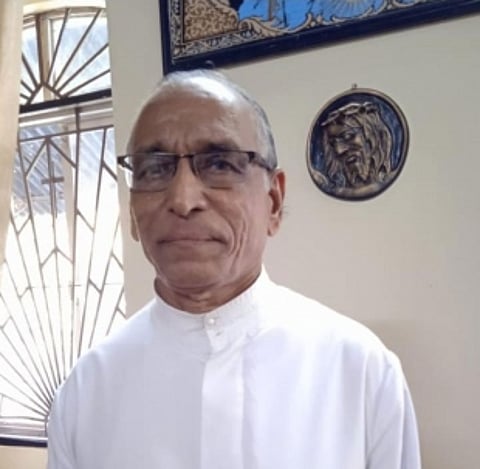

Team Herald
PANJIM: The fundamental point of concern and conflict with the government by those who understand the Comunidade Code and functioning in letter and spirit deeply is how it has stamped its might on an ancient system.
Adv Andre Pereira, easily the most consistent voice in favour of protecting Goa’s community lands, highlighted the issue of protection that these lands urgently need and seek.
“We are dealing with the protection of community land in the State of Goa, where it is now vested with State rulers or legislature, while it has been vesting with villagers for ages by the State recognised law,” he said.
Under the Code of Comunidades, ownership of community land has been vested with original Gaunkars since times immemorial by succession. Gaunkars and/or shareholders were legitimate components of these green village communities or comunidades of Goa.
“Now the responsibility to protect the given community land is primarily that of the State rulers and or legislature and equally with Gaunkars and the respective shareholders,” Adv Pereira said.
LEGISLATIVE COMPETENCE TEST- Fails
But he steps back to flag something more fundamental - “the Constitutional Legislative competence of State legislatures to deal with existing laws (such as the Code of Comunidades) when things covered by said laws were not foreseen under lists of Seventh Schedule to Constitution of India”. His reasoning is as follows:
“The Congress Government at the Centre passed the Goa Daman and Diu (Administration) Act, 1962 to be applied to the Territories of Goa Daman and Diu, which became a part of Union of India on 20.12.1961, which were under Portuguese rulers for over 450 years.
“Section 5 of above said Act 1962, provided to repeal and amend the existing laws prior 20.12.1961 in this Territory within two years in order to adapt them in conformity with the Constitution of India or else they will continue to be in force.”
Adv Periera therefore implies that existing laws pre-December 20 1961 in Goa were not amended or repealed within two years and hence the Code of Comunidade stood post December 20, 1961.
POWER TO AMEND TEST- Fails
Fr Visitacao Boaventura Monteiro, the serving Priest of Bodiem, near Tivim and a long-time writer and columnist in O Heraldo and author of the book ‘Goan Village Communities’ said, “Any amendment under the Code of Comunidade has to be done under Article 652 by the communities, for which a comunidade convention has to be called every five years.
“The government has to call this meeting for which a commission has to be formed. Any amendments have to be done in this convention and then put up to the government. This is embedded in the code itself,” Fr Monteiro said.
He said the Comunidade convention has not been held for years and hence these amendments done hastily through the legislature cannot stand,” Fr Monteiro added.
Making the comunidade de-facto come under the land revenue code - Absolutely incorrect
Fr Monteiro goes on to add that the Code itself is unconstitutional. These are constitutional comunidades. This is a separate constitution that governs the comunidade.
“Without rescinding one constitution, you cannot bring the comunidade under the Land Revenue Code which these amendments seek to do. This is a total hotch-potch. Goa was not even represented in the Constituent Assembly. Our laws were based on the customs and musings of the people,” he said.
“So our laws, framed under the Roman system of jurisprudence are very much within the Constitution of India and recognised by it but these laws are not ‘under’ the constitution which was framed when India gained independence from the British, under the British system of jurisprudence,” Fr Monteiro added.
Test of fairness- fails
Please answer this first. Is this fair or is this just to nullify the very concept of the comunidade system: Mariano Pinheiro
Writer and columnist, Mariano Pinheiro said, “The Code of Comunidades is very special and peculiar to Goa. The Code of Comunidade has one purpose, while the land revenue code has an entirely different purpose. By bringing the code of comunidade under the land revenue code the government is indirectly trying to nullify or minimize the very concept of the comunidade system. That is very unfair,” Pinheiro said.